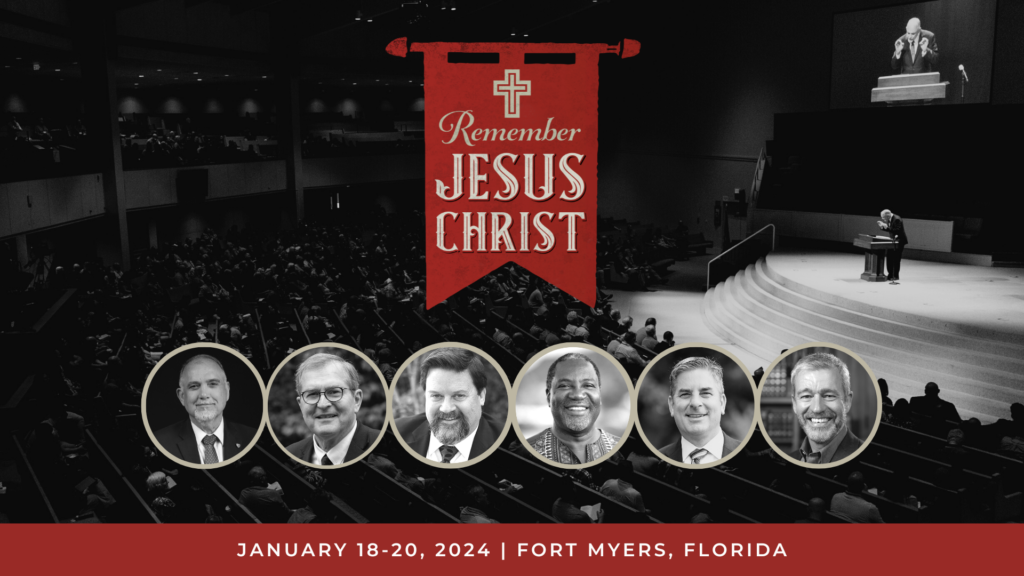This article is part 6 in a series by Tom Nettles on Remembering Jesus Christ. (Part 1, Part 2, Part 3, Part 4, Part 5).
Paul’s alarm at the gullibility of the Corinthians in receiving false teachers arose from the implications this had for several issues of vital truth, all of which impinged on the genuineness of their faith. One, their undiscerning spirit questioned the authenticity of his appointment as an apostle. Could these false teachers relativize Pauls’ apostleship, they would do the same to his preaching. Paul, therefore, spent chapters 11 and 12 of 2 Corinthians demonstrating the genuineness of his apostleship in order for them not to be “led astray from a sincere and pure devotion to Christ” (2 Corinthians 11:3). A second issue concerned the nature of the spirit, or Spirit, at work in them. Receiving the message of these false apostles would mean that they did not believe by the work of the Holy Spirit but actually had been duped, even as Eve was, by Satan disguised as an angel of light. John gives a succinct statement concerning the work of the Holy Spirit in relation to true belief when he asserts, “Everyone who believes that Jesus is the Christ has been born of God” (1 John 5:1). Third, if they received the alternative being offered to them, and departed from Paul’s gospel, then they had a different gospel, which, as he told the Galatians, is no gospel at all. Contrary to the claims of these false apostles, messengers of the great deceiver, what they toyed with had no saving power. A fourth difficulty enveloped all the others. Such a shift in their religious persuasion would finally mean that they received “another Jesus than the one we proclaimed.” Another gospel and another Spirit means another Christ, for the Spirit is given by Christ and the gospel is defined absolutely in terms of the person and work of Christ.
As argued earlier, the admonition, “Remember Jesus Christ,” with the parameters established concerning person and work, implies a comprehensive commitment to a large range of doctrinal ideas. The unshakeable confidence that Paul had in the absolute authority of his gospel inhabits the words, “whom we have not preached.” We find both on the pages of the New Testament and in the history of the church a number of ways in which the Pauline exhortation, “Remember Jesus Christ,” has been disobeyed. Usually this amounts to a denial of some element of Christ’s person and a consequent modification—i.e. denial—of his work and thus a severe alteration of the gospel preached by Paul.
Another gospel and another Spirit means another Christ, for the Spirit is given by Christ and the gospel is defined absolutely in terms of the person and work of Christ.
One way that Jesus is forgotten is by a denial of his true humanity. John confronts this error when he says, “The Word became flesh and dwelt among us” (John 1:14). He also had in mind a group that hesitated to embrace the apostolic teaching of the full humanity of Christ when he assured the readers of 1 John that the very one who was from the beginning “we have seen with our eyes, … we have looked upon and have touched with our hands” (1 John 1:1). Added strength to this doctrine is seen when John says, “The blood of Jesus his Son cleanses us from all sin” (1 John 1:7). Paul’s concern about the nature of the spirit at work in the temptation of the Corinthians to believe on a Jesus whom he had not preached is joined by John when he states, “By this you know the Spirit of God; every spirit that confesses that Jesus Christ has come in the flesh is from God, and every spirit that does not confess Jesus is not from God. This is the spirit of the antichrist” (1 John 4:2, 3). As he observed the developments among those who desired to find a position of teaching in Christian congregations, John warned that they should watch themselves “so that you do not lose what we have worked for.” Specifically, he referred to the “many deceivers” that had “gone out into the world” who “do not confess the coming of Jesus Christ in the flesh” (2 John 7, 8).
The writer of Hebrews, after a clear exposition of the deity of Jesus (Hebrews 1:1-13) and a warning about ignoring “such a great salvation” (Hebrews 2:1-4), shows the ontological necessity of the true humanity of Christ. “He who sanctifies and those who are sanctified all have the same nature” (Hebrews 2:11 – My translation). Again he writes, “Since therefore the children share in flesh and blood, he himself likewise partook of the same things” (Hebrews 2:14). Then further, as he argues more concerning the necessary qualifications of one who is to redeem fallen humanity, says, “Therefore he had to be made like his brothers in every respect, so that he might become a merciful and faithful high priest in the service of God, to make propitiation for the sins of the people” (Hebrews 2:17). Unless he were like us—that is, a man of full human nature, corruption of soul excepted—he could not make propitiation for the sins of the people.
Likewise, Paul argues in a number of places that Christ’s work of reconciliation would be impossible apart from the reality of the Son of God taking a real human nature to himself when he was “found in fashion as a man” (Philippians 2:8). In that way “he humbled himself by becoming obedient to the point of death” (Philippians 2:9). Another way Paul said it is found in his instructions to the church in Colossae when he reminds them, “And you who once were alienated and hostile in mind doing evil deeds, he has reconciled in his body of flesh by his death” (Colossians 1:21, 22).
All that we are in our bodies, Jesus became.
Peter joins the apostolic chorus in celebrating the condescending grace of God in sending his Son to take our human nature to perform the work of redemption. Peter affirms that sinners are “ransomed … with the precious blood of Christ” (1 Peter 1:18, 19). He intensifies this strong assertion with the words, “Christ suffered for you, … He Himself bore our sins in his own body on the tree” (1 Peter 2:21, 24). All that we are in our bodies, Jesus became; if not, we have none of our race through whom God’s wrath and expectation for righteousness can be covenantally fulfilled.
We must take time to admire and adore the great display and wisdom, power, and mercy found in the confession, “risen from the dead, of a seed of David.” None can explain but only believe the marvel displayed when the angel told Mary, “that holy thing conceived in you shall be called the Son of God” (Luke 1:35). The one who slept in the boat, and sweat great drops of blood, also forgave sins, silenced demons, and said “I and the Father are one.” Come, let us adore him.
This article is part 6 in a series by Tom Nettles on Remembering Jesus Christ.
Join us at the 2024 National Founders Conference on January 18-20 as we consider what it means to “Remember Jesus Christ” under the teaching of Tom Ascol, Joel Beeke, Paul Washer, Phil Johnson, Conrad Mbewe and Travis Allen.
























